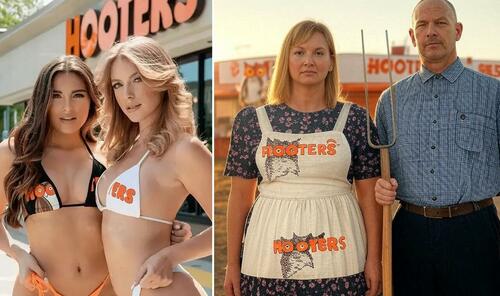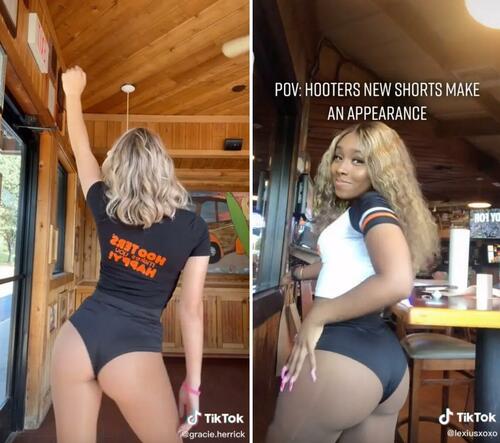With Hooters on the verge of bankruptcy, the legendary restaurant where you can eat mediocre food and check out tits (and pay in cash so your wife doesn’t find out) is getting rid of Bikini Nights and skimpy outfits, and hopes that an improvement in the food will stave off doom.
Neil Kiefer, CEO of parent company HMC Hospitality Group, told Bloomberg he’s calling the ‘family friendly’ changes “re-Hooterization.”
“You go to some parts of the country and people say, ‘Oh, I could never go to Hooters, my wife would kill me,” said Kiefer. “That’s depressing to us. We want to change that.”
According to the report, Hooters also plans to use fresher ingredients in the kitchen and provide faster service.
The move comes after the chain has closed several locations across the country – with 40 shuttered last year, and the remaining 300 on the line. At its peak in 2008, there were 400 locations.
In 2021, the chain unveiled a new uniform featuring “wedgie” micro shorts – which resembled bikini bottoms, and which some waitresses called “porn.”
According to industry analyst Aaron Allen, “For a business to be successful and sustainable, it helps to appeal to more than just men.”
The turnaround plan would likely see HMC and other Hooters franchisees take over most of the US locations that are currently owned and run by Hooters of America, which would likely see the closure of some locations, according to people familiar with the discussions. HOA is currently owned by Nord Bay Capital and TriArtisan Capital Advisors, LLC.
The end result is that HMC, should the plan go through, would help oversee the overall brand and advise franchisees on how to operate. The fix, according to Kiefer, boils down to three principles: good food, good service and regular reinvestment in the stores’ operations, something he says has been lacking at the eateries owned by HOA.
“There’s a noticeable difference,” Kiefer said. “The food’s different, the service is different — I hope to correct it all.”
In 2022, HOA’s owners, among other things, added $50 million in subordinated debt, after issuing approximately $300 million in asset-backed bonds in 2014, which were packaged as ‘whole-business securitizations,’ pledging most of its assets, including franchise fees, as collateral. The current bankruptcy under consideration would see certain holders of its securitized debt team up with HMC to facilitate a change of control, according to the report. In this scenario, the debt holders would likely agree to restructure or roll their debt into securities with a longer maturity and the same or similar collateral pools.
RIP this:
Loading…





















